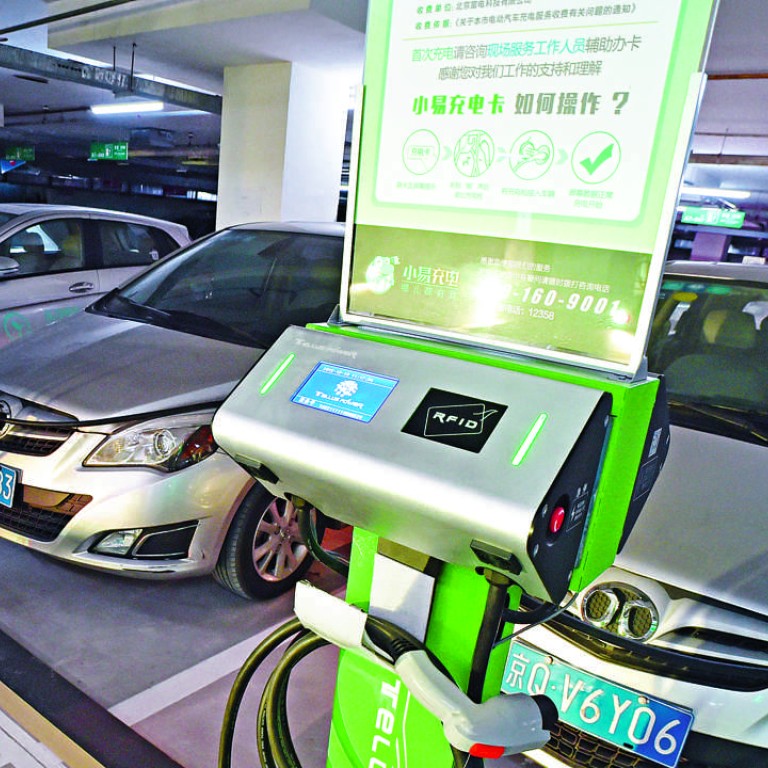
Higher gear: China’s industry ministry predicts competition in ‘green’ car market to intensify
More than 330,000 new-energy vehicles sold last year and Beijing expects demand to increase further, but hurdles remain, says Miao Wei
China’s top industry official on Sunday offered a rosy projection for the growth of environmentally friendly vehicles this year, announcing the new-energy car sector was on track to become the world’s biggest.
Miao Wei, the minister for industry and information technology, said on the sidelines of the annual session of the legislature that annual sales would more than double in 2016 after strong growth last year.
“An increasing number of companies and products are prepared to join in the competition for the new-energy car market,” Miao said. “I believe the industry will continue to grow with upward momentum as the government is also adamant in supporting it with policy incentives.”
The government is also adamant in supporting it with policy incentives
More than 330,000 “green” cars were sold last year, a more than fourfold increase over the previous year.
Beijing has set a target of 5 million new-energy vehicles on the road by 2020, butuntil 2014 sales were weak.
The government, as part of its effort to improve environmental protection, spent billions of yuan in subsidies for the purchase of electric, hybrid and fuel-cell cars. It offered other inducements such as free driving permits, lower parking fees and consumption tax exemptions. In Shanghai, a permit for a private car costs about 900,000 yuan (US$138,600 or HK$1.07 million).

Miao admitted that despite the strong growth now, two bottlenecks remained. Batteries were still a concern because safety and reliability was a problem. Drivers expected them to power long journeys and have an extended lifespan, he said.
READ MORE: Batteries may stall China’s electric vehicle push
He also said more charging stations should be set up to support the expected demand.
The ministry said last year some new-energy vehicles that had caught fire had design flaws, and ordered manufacturers to carry out safety tests and report the findings to the regulator.
Analysts said the mainland would need to develop a mature electric-vehicle market in the next decade or the environment would continue to worsen.
READ MORE: China’s car sales slump in January but analysts still optimistic on outlook for 2016
China is the world’s largest greenhouse gas contributor, and remains its biggest car market.
Deliveries of vehicles for last year increased by 4.7 per cent year on year to 24.6 million units. The United States by comparison saw 17 million units.
China is the world’s largest greenhouse gas contributor.

